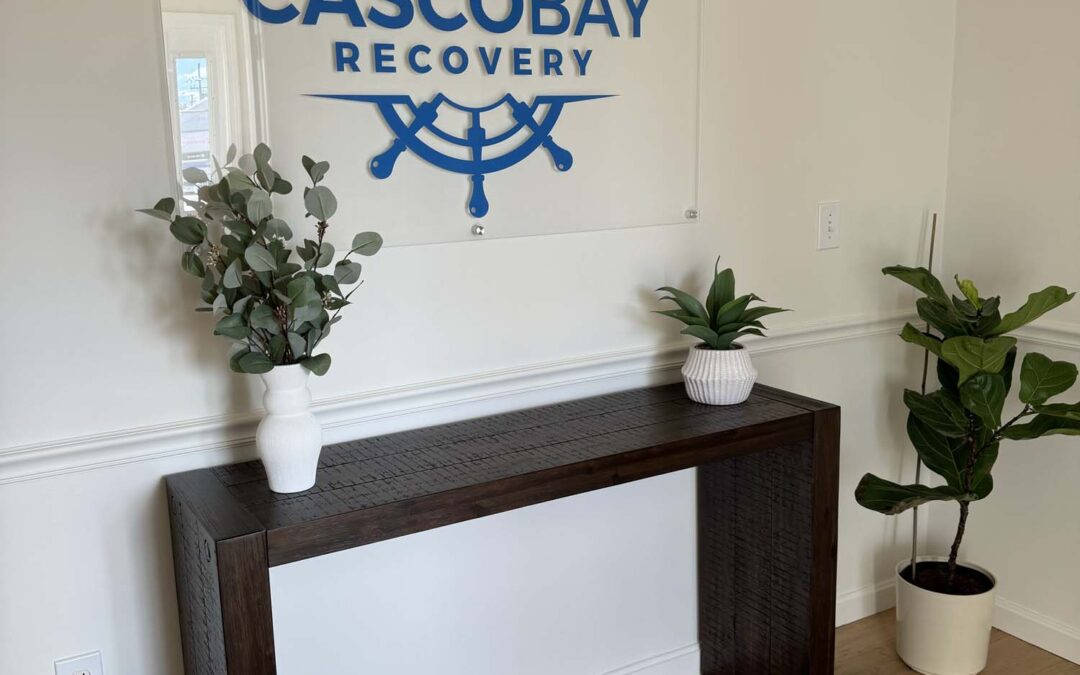Beginning the journey of sobriety can be a challenging but ultimately worthwhile endeavor that requires dedication, courage, and having people in your corner. By building up this strong support network around you, it is possible to reap mental health benefits such as improved relationships with yourself and those close to you, all while achieving lasting change. This article aims to guide readers toward making these changes by highlighting what needs doing, recognizing any roadblocks along the way, and pointing them in the direction of resources designed to help individuals get sober.
Key Takeaways
- Choosing sobriety is a difficult but rewarding journey that can lead to improved physical and mental health, heightened focus and clarity, strengthened relationships, increased productivity, emotional stability, and personal growth.
- Professional substance abuse treatment programs and support networks guide those seeking to get sober from alcohol.
- Developing a strong support system with healthy coping mechanisms are essential strategy for building an effective relapse prevention plan.
Embracing the Decision to Get Sober
Making a conscious decision to become sober marks the start of an important, life-altering journey. Consider this as standing at the entrance of a dense forest with one goal in mind: reaching freedom from addiction and seeking out true joy through healthier practices. This might seem intimidating, but each step towards addiction recovery is another step closer to your destination. Quitting alcohol abuse involves more than just making that choice. It’s establishing yourself on solid footing for sustainable sobriety ahead. You are now able to steer your destiny away from substance abuse’s destructive effects by taking advantage of our support and treatment facilities along this path you chose willingly!
Your pursuit will lead you down roads lined with progress – both physical & psychological benefits come hand in hand when cutting back (or eliminating) drug abuse and consumption where once alcoholism behavior was controlling everything around them. Nowadays though, they stand proud knowing that they have welcomed into their lives prospects which never seemed possible before due to reinstating control over their well-being.
You Made the Right Choice!
Committing to live a sober life is an admirable endeavor, comparable in difficulty and grandeur to the ascension up a mountain. It can bring many benefits that improve your health – physically as well as mentally, healthy relationships with others become strengthened due to increased clarity and focus, productivity grows exponentially, and sleep becomes more regularized while also providing financial benefits over time. The decision itself allows for personal growth and self-discovery through which one finds emotional stability eventually.
This journey towards sobriety may be demanding, but those who accept this challenge find immeasurable rewards at its completion. They receive enhanced physical wellness, mental acuity, and flourishing healthy ties. In turn, this increases performance levels alongside balanced emotions derived from engaging in inner exploration and enabling success down the line. Making a conscious choice toward abstinence marks the start of moving forward toward a better life ahead.
What Are Some Ways to Get Sober From Alcohol?

Obtaining sobriety from substance abuse can be a difficult process, but there are various paths to take. Structured treatment programs like inpatient hospitalization, outpatient programs, 12-step recovery programs, and sober living community services provide guidance.
Support networks consisting of mutual support groups with family members or close friends also play an important role by providing invaluable advice on how best to tackle problems associated with substance use disorder (SUD). As SUD is chronic, continuous dedication to sobriety needs maintenance even when leaving formal treatment, this is where aftercare programs come into effect which serve as a stepping stone towards sustained freedom from drugs or alcohol.
Professional Alcohol Addiction Treatment at Casco Bay Recovery
At Casco Bay Recovery, we understand the difficulty of breaking free from an alcohol addiction and provide tailored treatment plans to help individuals reach their goals. We offer medically supervised detox services to ensure a safe and comfortable process when going through withdrawal. Through personalized treatments focusing on each person’s individual needs as well as addressing any underlying health issues, people can enhance their overall quality of life during addiction recovery. Our staff is dedicated to decreasing the risk associated with alcohol withdrawal and withdrawal symptoms.
To aid long-term sobriety for our clients, we provide several support options which include one-on-one counseling sessions along with group therapies led by professionals specialized in this field. There is also a relapse prevention plan available for those who have gone through similar journeys together creating strong sober communities. Relapse prevention plans allow guidance throughout enduring milestones and earned post-substance dependency struggles.
Casco Bay Recovery guides addicts seeking relief while giving them helpful tools such as what they need to know about sustaining themselves mentally after conquering addictive behavior. Therefore, lasting resolutions are within sight providing hope on days when it’s difficult more than ever.
How Long Does It Take To Feel the Effects of Not Drinking?
The transition from night to day is not instantaneous but rather involves a gradual lightening of the sky with sunrise. Analogously, when one decides to stop drinking alcohol, they will likely experience both physical and psychological effects that can take time for their body and mind to become accustomed to. These may include tremors, sweating, nausea, vomiting, headache; and increased heart rate/blood pressure changes – in extreme cases leading to even delirium tremens (DTs), which can be life-threatening if left unchecked by medical care practitioners. On the mental side, there could be anxiety and depression bouts as well as irritability, restlessness, insomnia, or heightened mood swings.
But positive outcomes are felt immediately! You won’t have any more hangovers causing fatigue nor will you get sick because of dehydration or lack of sleep anymore either – minimizing the risks associated with injury due to stopping excessive consumption promptly. So when it comes down to establishing sobriety, ultimately having a healthy lifestyle and bringing back vigor physically & emotionally shall result naturally in the longer run.
Combatting Withdrawal Symptoms
Combatting the symptoms of withdrawing from alcohol is like facing a turbulent storm. Though it can be arduous, the right approach and techniques help manage withdrawal effectively. Typical signs people may experience during alcohol cessation include irritability, anxiety, depression, fatigue, and sleep troubles which are usually experienced over several days up to two or three weeks depending on factors such as the amount consumed previously and regularity of use. It is highly important that abstaining abruptly without professional assistance might pose risks equal to not having adequate preparation when tackling an intense tempest. Therefore, self-help strategies should always be considered before any other action: ensure proper hydration levels, take cold showers, opt for healthy meal alternatives along with relaxation practices like deep breathing exercises combined with meditation techniques. Medical professionals could prescribe medications such as benzodiazepines to tackle these issues while preventing complications at bay.
Assembling a Support Network
A strong support network is just like weaving a protective net – it catches you when circumstances are difficult, providing comfort and assistance. This kind of help plays an essential part in aiding those struggling with addiction on their journey to long-term sobriety. By giving the necessary motivation and assurance while also introducing others who can assist them through this process.
Family members are very beneficial throughout the sobriety journey as they may attend therapy sessions with the individual in need, offer emotional aid, or participate together at support group meetings so everyone has a better comprehension of what’s happening. Interpersonal therapy sets out to create powerful social networks that will lead people towards freedom from substance abuse due to its efficacy during alcoholism rehabilitation, focusing primarily on enhancing communication capabilities between individuals involved as well as building relationships among all parties concerned. Participating actively at religious events promoting abstinence provides additional strength for recovering addicts since congregations grant practical knowledge along with moral bases leading supporters closer to achieving ultimate goals.
Importance of Support Groups
Support groups are like beacons in the turbulent seas of addiction, providing a secure haven for those struggling to stay sober. Within these circles there is understanding, empathy, and camaraderie – all important components that enable members to express their recovery experience without being judged or criticized.
Many well-known support communities including Alcoholics Anonymous (AA), SMART Recovery, Women for Sobriety, and Moderation Management all have programs available that can help individuals overcome alcohol dependence.
Developing Relapse Prevention Skills
Preventing relapse is analogous to constructing a strong dam that can withstand flooding. To do this, one must identify triggers and build strategies for handling them to maintain sobriety. Relapse prevention skills include creating a support system comprised of family or peers who will offer guidance when needed. Applying self-care techniques such as stress management practices and healthy coping mechanisms like setting realistic goals. Also, seek professional help if necessary. To ensure successful long-term recovery from alcoholism, it is important to have multiple layers of protection–having a reliable network for assistance, utilizing proper coping methods when facing high-risk situations, and crafting individualized plans should danger arise—all combine to establish the framework of resilience required to stop alcohol addiction recurrences.
Recognizing Warning Signs
It can be likened to seeing a warning sign of an incoming storm: dark clouds, sudden temperature drops, and strong gusts. A potential alcohol relapse typically includes cravings for liquor, tolerance increases, being around former drinking buddies, or engaging in dangerous activities. It also entails neglecting duties and relationships as well as feeling agitated or anxious even without consuming heavy alcohol. Withdrawal symptoms may appear too when abstaining from drinking.
Alcohol craving refers to having extreme urges to drink despite periods of maintaining sobriety brought on by various triggers such as stressors in life like social settings, and painful emotions other than that external factors like environmental conditions and peer pressure are likely causes behind this urge signaling a high relapse risk likelihood. Stress is one heavy contributor leading up to these signs making it more probable thus emphasizing the importance of understanding its influence over the alcoholism recovery process.
Creating a Safety Plan
Creating a safety plan for ongoing sobriety can be compared to charting the route of a ship. It involves preparing for any potential obstacles and knowing how you will deal with them accordingly. Essential elements that need to be included in this type of plan are: identifying personal triggers, having specific strategies ready to address each trigger, developing coping skills, and listing contact details from your support network plus effective methods that can help manage situations appropriately. Lastly, reviewing and updating it regularly is key too!
Incorporating an appropriate approach such as using these plans consistently helps ensure an ongoing process of success when trying to maintain long-term sobriety, they give individuals the best chance at avoiding relapse down the road by providing the information needed during challenging times ahead.
Cultivating a Substance-Free Lifestyle
Creating a sober lifestyle is similar to sowing seeds in an abundant garden. The practices you set forth today will bring about beautiful blooms later on. Introducing yourself to new pastimes can be crucial for constructing and preserving a sobriety-centered life, especially during recovery as it encourages personal growth by providing something meaningful instead of substance abuse habits. Taking care of one’s physical well-being should not be neglected throughout this process either due to any health issues that may have been disregarded during active addiction, it is essential for overall well-being too!
To manage stress while recovering from alcohol or drugs, good options include engaging in hobbies, doing exercise regularly, and practicing mindfulness. All healthy strategies are suitable for decreasing pressure when trying to maintain abstinence from substances. There are also plenty of alternatives available when considering nonalcoholic beverages like coffee drinks with different flavors such as tea or fresh fruit seltzer/soda plus freshly squeezed lemon/lime juice combinations which could come in handy if cravings arise suddenly without having drinking alcoholic drinks necessary anymore.
What You Can Drink Instead of Alcohol
When it comes to making healthier choices, opting for non-alcoholic drinks is a great option. There are plenty of enjoyable and delicious alternatives that can satisfy any craving you may have without the consequences associated with alcohol consumption. For instance, many people enjoy coffee or tea in place of an alcoholic beverage. Adding salt and fresh fruit makes it even more refreshing! An alternative way to spice up your drink could be soda mixed with lemon or lime slices – simple yet very satisfying.
How Your Physical Health Improves After Quitting Alcohol Abuse
Stopping alcohol consumption can be likened to leaving a harmful relationship. Letting go of drinking has many instantaneous advantages such as improved sleep quality, heightened concentration, and the potential for weight loss. Excessive alcohol intake leads to visible signs including fatigue, and facial swelling. To under-eye puffiness among other physical telltale features on an individual’s face or body which are often overlooked in their long-term impact on overall well-being when deciding whether or not to drink alcoholic beverages.
Let Casco Bay Recovery Help You Become and Stay Sober

Casco Bay Recovery works to give you the best path to sobriety, providing tailored addiction treatment plans depending on your needs. Whether it’s just starting or striving for long-term abstinence from alcohol, we offer support and direction every step of the way.
Our programs cater to both outpatient and intensive outpatient treatments when dealing with alcohol dependency. This includes 5 days a week worth of therapy sessions/activities along with counseling that can be adjusted according to an individual’s preference between these two options.
Summary
Navigating through the labyrinth of recovery is a difficult journey, but with Casco Bay Recovery’s help, you can make it to the finish line – leading to an addiction-free life. This pathway takes dedication and persistence. All efforts taken along this path bring one closer to their goal of living a healthier future filled with accomplishment. It may be hard going at times, much like climbing up a mountain peak — yet its remarkable outcome in terms of liberation from dependence more than makes up for any struggles encountered!
Frequently Asked Questions
Does Water Help Sober You Up?
Contrary to what many may assume, drinking water or bathing will not reduce the effects of alcohol. Only time can do that as your body takes around 1 hour to process one alcoholic drink consumed.
Getting sober is a gradual process and there’s no way for it to be hastened in any manner. Regardless of whether you consume liquids or take hot showers, they won’t change anything! Stop drinking with our formal treatment program with our treatment professionals is the best option for a substance-free life.
How Can I Effectively Manage Stress During Sobriety?
Staying sober can be a challenge, but managing stress during your sobriety journey is possible by participating in enjoyable hobbies, engaging in physical exercise regularly, and utilizing mindfulness techniques. All these activities are beneficial for keeping our minds busy while helping to lower any pressures we may feel, creating an overall healthy equilibrium. Following this healthy lifestyle will improve substance use disorder and mental health issues in our treatment program.
What Are Some Non-Alcoholic Drinks I Can Enjoy as Alternatives to Alcohol?
Various types of beverages that don’t contain alcohol can be enjoyed, such as coffee and tea or flavored sparkling water with a fruit garnish. Soda is also an option with the addition of either lemon or lime for flavor. However, it is best to follow a healthy lifestyle because it’ll benefit a sober lifestyle in the long run.
What Are the Benefits of Quitting Alcohol?
When you quit drinking, you can benefit from better sleep, an increase in focus, possible weight loss as well as a healthier look and well-being. Getting sober from alcohol use and substance use will assist your mental health and physical well-being in more ways than one.
How Can Casco Bay Recovery Help Me in My Recovery Journey?
At Casco Bay Recovery, we understand the process of how to get sober isn’t easy. To get sober, stop drinking, and remain sober is a personalized journey. We strive to offer specialized addiction treatment services, professional support, and emotional support at our rehab facilities catered to your individual needs.







